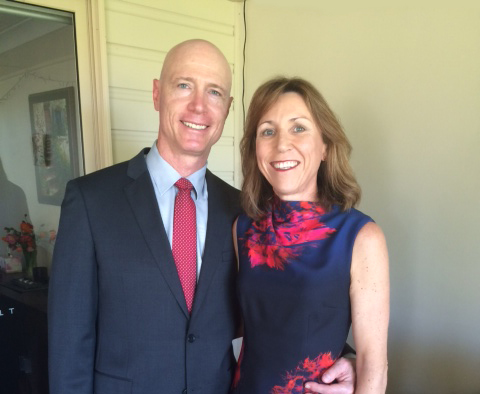Gluten free or low FODMAP – which is harder to follow?
We had a lovely couple stay with us recently, one of whom has coeliac disease and one who suffers with irritable bowel syndrome. I bought gluten free stock but it contained onion and garlic (high FODMAP). I bought rice noodles but on closer inspection they were not 100% gluten free. Even as a dietitian my head was spinning. I thought it would be interesting to ask them – who has the more difficult diet to follow – the coeliac or the FODMAPer? After much animated discussion, here is what they said.
KD – “What is the most challenging thing about combining a gluten free diet and low FODMAP diet in one household?”
While a gluten free diet only requires the removal from the weekly shopping list of products containing wheat, rye, barley and oats, a FODMAP diet also means watching out for a far greater range of food groups.
Also, while labelling of allergens such as gluten is now almost universal, FODMAPs are not included in this list. Therefore while following the “Gluten Free Rule” will rule out many FODMAP foods, it won’t eliminate them altogether.
KD – “You would think that taking wheat, barley and rye out of the household then both gluten free and FODMAPs would be covered. But is that your experience? What is similar and what is different in your dietary requirements?”
Not really. We have taken wheat, barley, rye and oats out of the household but still have to be wary of foods like those listed above for the FODMAP diet.
While our diet is essentially the same as we only eat GF, the coeliac mostly does the cooking so, through an awareness of the condition, can moderate the FODMAPs. Also, the coeliac can tolerate a greater amount of salads and fruit, which the FODMAPer tends to avoid or restrict.
KD – “Who has the harder diet to follow?”
Both the coeliac and the FODMAPer agree that the FODMAP diet is harder as it’s not a case of eliminating FODMAPs completely but managing them to a level of tolerance. If this level is exceeded however (and this is hard to judge), IBS symptoms result.
Awareness of FODMAPs is not as high as awareness of gluten free. However, many people and food outlets assume that gluten free is a lifestyle choice not a medical condition, so we tend to say a coeliac diet when eating out, rather than gluten free.
KD – “One of you has to exclude a large chunk of one food group (bread and grains) but the other has to restrict some foods from each food group, which is trickier?”
Definitely FODMAPs. The coeliac is finding that GF labelling is becoming more extensive. Certainly most food outlets now understand the meaning of gluten free and so can either make accommodations accordingly or advise that they can’t. Either way the coeliac is protected. The FODMAPer however tend to order gluten free to get over the wheat ‘hurdle’ and then look for FODMAPs.
KD – “How hard is it to explain your two diets when you go out to eat?”
Dining out tends to mean choosing a low FODMAP option from the gluten free menu. But it’s not always easy to do, and certainly not worth trying to explain.
KD – “Anything else you would like to add?”
While a FODMAP intolerance can result in severe discomfort, it doesn’t appear to cause any real damage to the GI tract, unlike gluten to a coeliac. Therefore, as a couple, we prioritise gluten free first and foremost. FODMAP awareness and management has improved the FODMAPers quality of life and this combination now means the least combined trauma.
Thanks so much for sharing. If you would like to share your FODMAP journey or experiences, please contact Kerith Duncanson.

